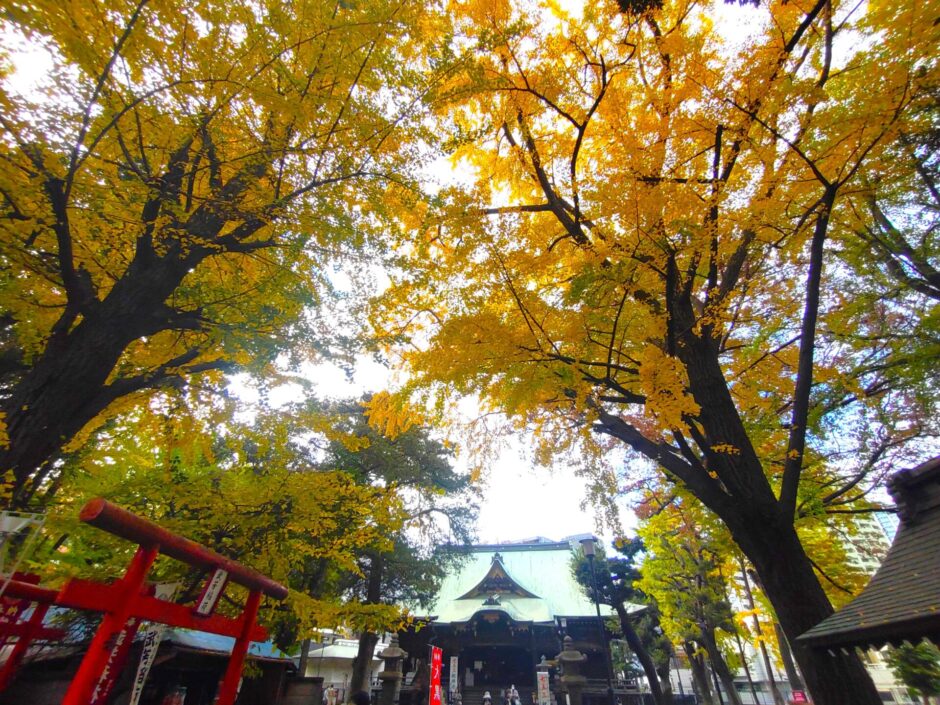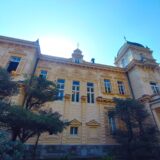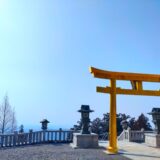【Zoshigaya Kishimojin Hall summary】
Kishimojin (Kishibojin/Kishibojin) Hall is a hall dedicated to Kishimojin, the god of safe delivery and child rearing, and was originally built in 1561 when a statue of Kishimojin was dug up around Mejirodai and purified in a triangular well called Hoshi no Ii, and enshrined there. The worship hall was built in 1664 and the main hall in 1700 by a donation from the Hiroshima clan; the main hall, which was designated a National Important Cultural Property in 2016, a 700-year-old giant gibbon tree, and Takeyoshi Inari are all part of the temple’s history.
![Zoshigaya Kishimojin Hall (Houmyouji Temple) [Tokyo] DSC 0514 1 1024x768 - Zoshigaya Kishimojin Hall (Houmyouji Temple) [Tokyo]](https://japan-shrine.info/wp-content/uploads/DSC_0514-1-1024x768.jpg)
Originally, he was an evil demon in ancient Indian mythology who killed and ate people to feed his many children.
![Zoshigaya Kishimojin Hall (Houmyouji Temple) [Tokyo] DSC 0517 1024x768 - Zoshigaya Kishimojin Hall (Houmyouji Temple) [Tokyo]](https://japan-shrine.info/wp-content/uploads/DSC_0517-1024x768.jpg)
【Zoshigaya Kishimojin Hall scenery】
The top of the kanji for oni. There is no dot, the kanji for oni. It means that the devil has no horns, and the statue of Kishimojin in Kishimojin is not a devil, but a beautiful bodhisattva holding an infant, so the horns of the devil were taken off.
![Zoshigaya Kishimojin Hall (Houmyouji Temple) [Tokyo] DSC 0495 1024x768 - Zoshigaya Kishimojin Hall (Houmyouji Temple) [Tokyo]](https://japan-shrine.info/wp-content/uploads/DSC_0495-1024x768.jpg)
We often visit families living in the Ikebukuro, Mejiro, and surrounding areas for Shichi-Go-San and Omiya-sai shoots.
【Zoshigaya Kishimojin Hall precincts】
There is a huge ginkgo tree in the precincts of the temple that is over 600 years old. In autumn, its leaves were beautifully shining in golden colors. It is also designated as a natural monument by the Tokyo Metropolitan Government. The tree is now enclosed so as not to put a burden on the old tree.
![Zoshigaya Kishimojin Hall (Houmyouji Temple) [Tokyo] DSC 0513 1024x768 - Zoshigaya Kishimojin Hall (Houmyouji Temple) [Tokyo]](https://japan-shrine.info/wp-content/uploads/DSC_0513-1024x768.jpg)
The Inari shrine and torii gate surrounding the ginkgo tree are also picturesque. Takeho Inari Daimyojin was in existence before Kishimo Hall, and when Kishimo Hall was built, this area was called Inari no Mori, and was worshipped as the landowner god of this area.
![Zoshigaya Kishimojin Hall (Houmyouji Temple) [Tokyo] DSC 0499 1024x768 - Zoshigaya Kishimojin Hall (Houmyouji Temple) [Tokyo]](https://japan-shrine.info/wp-content/uploads/DSC_0499-1024x768.jpg)
There is also Japan’s oldest candy store that has been around for more than 200 years, giving it a nostalgic feel of the old days. I think the candy store is an indispensable part of Kishimojin, the guardian deity of children.
![Zoshigaya Kishimojin Hall (Houmyouji Temple) [Tokyo] DSC 0515 1024x768 - Zoshigaya Kishimojin Hall (Houmyouji Temple) [Tokyo]](https://japan-shrine.info/wp-content/uploads/DSC_0515-1024x768.jpg)
【Zoshigaya Kishimojin Hall Nearby attractions】
About a two-minute walk from Kishimojin-do is Houmei-ji Temple, the main temple of Kishimojin-do, which is said to have been founded by Nichigen in 810 and is a beautiful place to view cherry blossoms in springtime. The temple has been famous for its cherry blossoms since the Edo period (1603-1867).
![Zoshigaya Kishimojin Hall (Houmyouji Temple) [Tokyo] DSC 0524 1024x768 - Zoshigaya Kishimojin Hall (Houmyouji Temple) [Tokyo]](https://japan-shrine.info/wp-content/uploads/DSC_0524-1024x768.jpg)
Although it was destroyed by fire during the war, it has been rebuilt and reconstructed many times.
![Zoshigaya Kishimojin Hall (Houmyouji Temple) [Tokyo] DSC 0523 1024x768 - Zoshigaya Kishimojin Hall (Houmyouji Temple) [Tokyo]](https://japan-shrine.info/wp-content/uploads/DSC_0523-1024x768.jpg)
【Zoshigaya Kishimojin Hall Access】
Manager’s comment.
Ikebukuro is a bustling metropolis, but a 10-minute walk from the station leads to a quiet and serene temple town. I visited Kishimojin-do around noon and found it crowded with parents and children celebrating Shichi-Go-San.
 Tour of Japanese shrines and temples
Tour of Japanese shrines and temples 

![Zoshigaya Kishimojin Hall (Houmyouji Temple) [Tokyo] DSC 0566 150x150 - Zoshigaya Kishimojin Hall (Houmyouji Temple) [Tokyo]](https://japan-shrine.info/wp-content/uploads/DSC_0566-150x150.jpg)
![Zoshigaya Kishimojin Hall (Houmyouji Temple) [Tokyo] DSC 03512 150x150 - Zoshigaya Kishimojin Hall (Houmyouji Temple) [Tokyo]](https://japan-shrine.info/wp-content/uploads/DSC_03512-150x150.jpg)
![Zoshigaya Kishimojin Hall (Houmyouji Temple) [Tokyo] DSC 2266 1 150x150 - Zoshigaya Kishimojin Hall (Houmyouji Temple) [Tokyo]](https://japan-shrine.info/wp-content/uploads/DSC_2266-1-150x150.jpg)
![Zoshigaya Kishimojin Hall (Houmyouji Temple) [Tokyo] DSC 0494 Object Removal 150x150 - Zoshigaya Kishimojin Hall (Houmyouji Temple) [Tokyo]](https://japan-shrine.info/wp-content/uploads/DSC_0494_Object-Removal-150x150.jpg)

